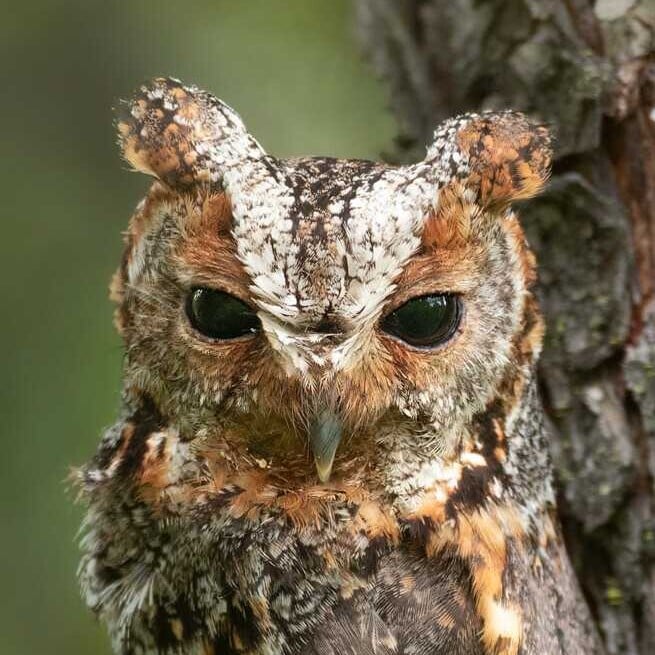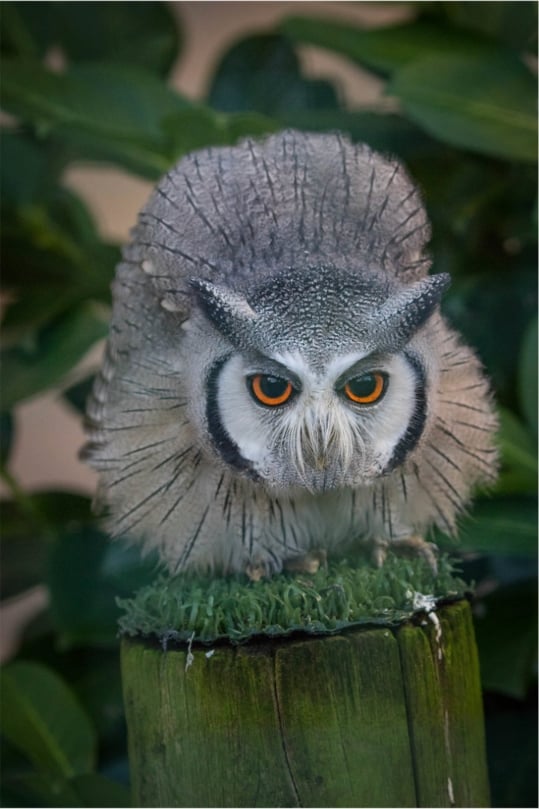From World Bird Sanctuary
Great Horned Owls, like many raptor species, do not show sexual dimorphism in their plumage between males and females. There is often a size difference, with females generally being larger than the males, but this is not a guaranteed way to tell them apart as there is a overlap in the weight ranges. 23-571 weighs in at 1300g at a healthy weight, which puts them in the weight range of a larger male, but not outside the realm of possibility of a smaller female.
You can compare 571’s size to the 11 surrounding babies that they are currently fostering. Some are smaller and others larger. At this age, you can start to see some mature plumage coming in amongst the fluffy body feathers of the babies. This indicates that the babies have reached their full size and all that remains to grow is the rest of their plumage.
Our team has suspected that 571 was male, both based on their size and their less aggressive demeanor. The DNA test results are now back and 571 is… Male!
23-571 joins Murphy in our club of elite foster dads and needs a name that exemplifies how exceptional he is!! Put your suggestions for a fitting name in the comments below. We will pick our favorite few and then return for a vote. Suggestion period is open until 5/21.
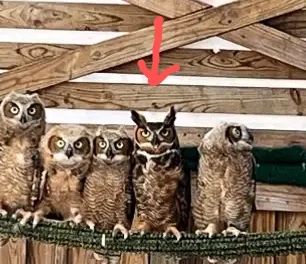
He’s the one in the middle. I know it’s a smaller pic so it may be hard to see.
I hope they officially reveal his name on Father’s Day.
That would be a great idea!
I’m not on Facebook and will not participate - but he looks like a Horton to me. Well, and there’s Horton hears a Who! :D
I know many here don’t like the Facebook links, and I don’t disagree with anyone for that. I was going to delete my account until I started doing this since it is the best way to get up to date info from the rescues, so that’s about all I use it for.
Don’t worry, I will share all the good stuff here and face all the tracking and cookies for you!
No worries. I just don’t like Facebook/Meta and their Business model. But a lot of animal rescues and other groups organise things on FB and share info. So there’s a good side.
I just meant that if someone else likes it and wants to enter they can use it.
But thank you for being our data protection officer. (I can’t share pics at the moment as the instance hosting my account is having technical problems insert person taking the knives for peacefully sleeping person meme)
I completely understand and agree. I’ve thought about offering to submit things on the group’s behalf, but that also would reveal my identity, so I won’t be doing that!
This reminds me of Pixar’s “for the birds”
I hadn’t seen that before, but that is a perfect companion clip for this photo!
I’m sure there are days that play out quite similar to that!
Surprised there is anyone who hasn’t seen this considering it is played before one of Pixar’s major films (Monsters Inc IIRC). But I guess you are one of today’s lucky 10k
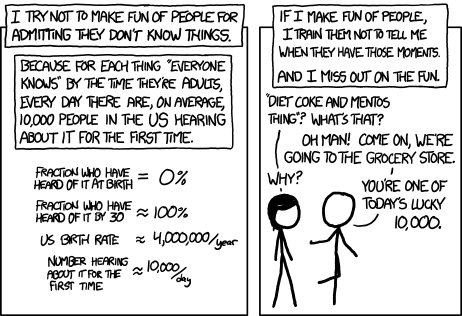
I must have seen it at least once then, I did see Monsters, Inc when that came out, but maybe only once or twice since.
I have seen that XKCD before though, and as I get older, sometimes I enjoy getting to try things again for the first time as I forget about things I’ve apparently already done! 😆
It’s always fun to see all the references you guys share when I post some of these pics. I never know what you all will share in return. We’ve had some great laughs and some real tangential conversations during a few of these posts, and it’s always a pleasant surprise where we can end up.
More like Great Horny Owl, am I right people?
You did make me laugh, but they’re all foster kids, so he could have lived a very chaste life! 😇
Owl kinky time doesn’t really sound like it is a fun time though, so I don’t know how exciting being a participant actually is. It sounds like getting pregnant by having someone fall on you.
From Ask an Academic:
Owls are generally monogamous, mating as an exclusive pair either for the season, such as the short-eared owl, or for life, such as the tawny owl. The courtship rituals of the owl varies from species to species, but usually involves calling. Special courtship flights, offers of food and mutual preening may also be involved.
Like most birds and reptiles, owls lack external genitalia, with both sexes instead possessing a cloaca. This is a urogenital opening – an orifice which serves as an opening for the excretion of both urine and feces, as well as serving reproductive purposes. During copulation, sperm are transferred via a ‘cloacal kiss’ – a brief contact of the cloacae, during which the sperm is transferred very quickly into the female reproductive tract. In some birds this can occur in less than half a second.
Although two ovaries are present during the embryonic development of the female bird, the adult usually only possesses a single functional ovary. This is connected to an oviduct, through which the eggs travel, slowly becoming calcified during their journey. Sperm cannot penetrate the calcified eggshell, so must travel up the oviduct to reach the eggs before this happens. Fertilization generally occurs in the infundibulum, a funnel-like cavity where the oviduct opens to the ovary, and each egg is fertilized individually as it is released. The number of eggs produced varies at both species and individual levels, ranging from single eggs to a dozen, although most species produce three or four.
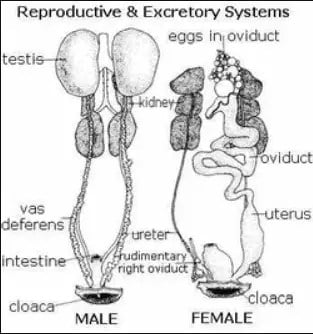
Hero!
Not all heros wear capes…some wear plumicorns!
